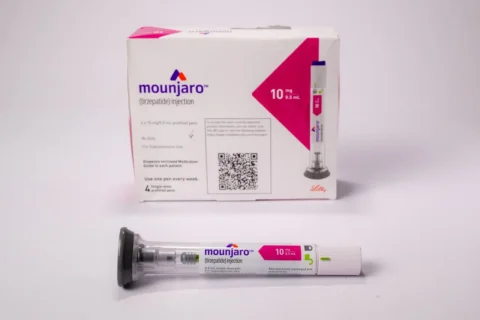Starting a new medication like Ozempic can feel like stepping into the unknown. You’ve heard about the benefits—improved blood sugar control, weight loss—but then come the side effects, and suddenly you’re wondering, how long do these Ozempic side effects last? Don’t worry, you’re not alone. For most people, these side effects are just a temporary hurdle on the way to feeling healthier.
In this article, we’ll discuss the most common side effects, how long they typically last, and when you should contact your healthcare provider.
What Are the Most Common Ozempic Side Effects?
Before we dive into how long side effects last, let’s quickly recap the most common ones.
According to both user reports and clinical studies, Ozempic’s most frequent side effects include:
- Nausea: The most common complaint, often mild but unpleasant.
- Diarrhea or constipation: Digestive issues may vary from person to person.
- Vomiting: Rare, but possible, especially in the early weeks.
- Fatigue: Some users report feeling more tired than usual.
- Stomach pain: Typically related to nausea or digestive upset.
How Long Do Common Ozempic Side Effects Last?
The side effects of Ozempic typically don’t last forever. Many users find that the symptoms are most noticeable at the start of their treatment and gradually fade over time. Let’s take a closer look at some of the most common side effects and how long they might stick around:
1. Nausea
- When it starts: Nausea is one of the most common early side effects and often begins shortly after your first few doses.
- How long it lasts: For most people, nausea subsides after the first 2-3 weeks as your body adjusts to the medication. It’s much less likely to be a long-term issue.
- What you can do: Eating smaller meals and avoiding rich or fatty foods can help reduce nausea. Some users also find that taking the injection before bed helps them sleep through any discomfort.
2. Diarrhea or Constipation
- When it starts: Digestive issues like diarrhea or constipation can start within the first few days of using Ozempic.
- How long it lasts: These symptoms usually resolve within 1-2 weeks. However, some users may experience occasional flare-ups throughout their treatment.
- What you can do: Staying hydrated and eating high-fiber foods can help manage both diarrhea and constipation. If you’re experiencing constipation, gentle exercise, like walking, can make a big difference.
3. Stomach Pain or Discomfort
- When it starts: Stomach pain or bloating can occur as your body adjusts to the medication.
- How long it lasts: Similar to nausea, most users report that this discomfort fades within the first few weeks of treatment.
- What you can do: Avoiding spicy or greasy foods can help. If the pain becomes severe or doesn’t improve, it’s a good idea to check in with your doctor.
4. Fatigue
- When it starts: Some people feel unusually tired when they first start taking Ozempic, especially if they’re also adjusting their diet or losing weight.
- How long it lasts: Fatigue typically fades after the first month of treatment as your body gets used to the medication.
- What you can do: Make sure you’re getting enough sleep and staying hydrated. Eating a balanced diet can also help improve energy levels.
For more information on common Ozempic side effects, check out our previous rundown of these conditions.
Why Am I Suddenly Sensitive to Ozempic?
If you’ve been using Ozempic for a while and suddenly find yourself more sensitive to its side effects, you might wonder why.
While it’s common for side effects to occur at the beginning of treatment, some users can develop sensitivity later on.
Here are a few possible reasons:
1. Changes in Diet or Hydration
Your body’s response to Ozempic can change based on your daily habits. If you’ve recently altered your diet—especially if you’re eating less or have changed the types of food you consume—your digestive system may become more sensitive to the medication. Similarly, dehydration can intensify side effects like nausea or dizziness.
Make sure you’re drinking enough water throughout the day.
2. Weight Loss Progress
As Ozempic helps you lose weight, your body’s metabolism may shift, leading to changes in how you process the medication. This can sometimes cause new or stronger side effects, even if you didn’t experience them earlier in your treatment.
3. Dosage Adjustments
If your doctor recently increased your Ozempic dosage, it’s normal to experience renewed sensitivity. Higher doses can cause side effects to return or intensify, but these symptoms usually fade as your body adjusts again. Make sure to discuss any changes in side effects with your healthcare provider.
4. Other Medications or Health Changes
If you’ve started taking a new medication or experienced changes in your health, this could impact how your body reacts to Ozempic. Certain drugs or health conditions can interact with Ozempic, leading to increased sensitivity.
It’s essential to keep your doctor informed of any new medications or health developments.
If you’ve noticed a sudden sensitivity to Ozempic, don’t hesitate to reach out to your healthcare provider. They can help you adjust your treatment plan or suggest ways to minimize side effects.
Why Do Some People Experience Ozempic Side Effects Longer?
While many people see their symptoms improve within the first few weeks of treatment, others may experience side effects for a longer period. Here are a few reasons why this might happen:
1. Your Ozempic Dosage
If your doctor starts you on a higher dose of Ozempic or increases it quickly, side effects may last longer. It’s often recommended to start with the lowest dose and increase slowly to give your body time to adjust.
2. Pre-existing Conditions
If you have certain digestive issues (like IBS or GERD), you may be more sensitive to the gastrointestinal side effects of Ozempic. Discuss any pre-existing conditions with your doctor before starting the medication.
3. Sensitivity to Ozempic
Everyone’s body reacts differently to medication. Some people are simply more sensitive to certain side effects, while others may have very few issues at all.
When Should You Be Concerned About Ozempic Side Effects?
While most Ozempic side effects are mild and temporary, it’s crucial to seek medical advice if you experience severe symptoms. Knowing when to distinguish between typical side effects and signs of something more serious is vital for your health.
When to Contact Your Doctor
You should reach out to your healthcare provider if you experience any of the following symptoms:
- Severe abdominal pain: This could be a sign of pancreatitis, a rare but serious side effect of Ozempic.
- Persistent vomiting: If you can’t keep food or fluids down for more than a day, this could lead to dehydration and other complications.
- Signs of an allergic reaction: If you notice swelling, itching, a rash, or difficulty breathing, seek immediate medical attention.
- Changes in vision: Though rare, some users have reported vision changes while using Ozempic, which should be addressed by a doctor.
Pancreatitis and Thyroid Concerns
In rare cases, Ozempic can increase the risk of pancreatitis (inflammation of the pancreas) or thyroid tumors. If you experience severe stomach pain that doesn’t go away or swelling in your neck, contact your doctor right away.
How QuickMD Makes Ozempic More Accessible and Affordable
At QuickMD, we know that managing your health is about more than just finding the right medication—it’s about making sure you’re informed and comfortable with your treatment every step of the way. We offer easy access to Ozempic prescriptions with affordable prices and hassle-free online consultations.
With Ozempic available for $629, you can get the medication you need, whether or not you have insurance. Our licensed providers are available for quick phone or video consultations so you can ask questions, discuss side effects, and adjust your dosage if needed.
Final Thoughts: What to Expect from Ozempic Side Effects
For most users, Ozempic’s side effects are mild, manageable, and—best of all—temporary.
By working closely with your doctor and listening to your body, you can stay on track with your health goals and minimize any potential side effects. Our aim is to provide you with a comprehensive understanding of what to expect from Ozempic side effects.
If you’re ready to take control of your diabetes or weight loss journey, QuickMD is here to help. Book an appointment today for a quick and easy consultation, and get your prescription sent straight to your pharmacy without the hassle of long waits or high costs.




